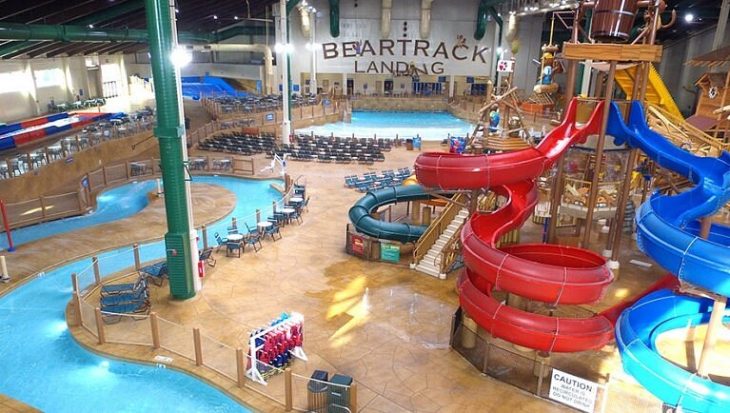
Word of the Day: Cacophony
Today’s word of the day, thanks to Merriam-Webster, is cacophony. Cacophony is a noun which means “a mixture of loud and usually harsh unpleasant sounds. Cacophony can also refer to an incongruous or chaotic mixture” (https://www.merriam-webster.com/word-of-the-day). Another dictionary defines as “harsh or unpleasant discordance of sound; dissonance” or “a discordant and meaningless mixture of sounds” (https://www.dictionary.com/browse/cacophony).
Merriam-Webster goes on, “If you’re hooked on phonetics, you may know that the Greek word phōnḗ has made a great deal of noise in English. Cacophony comes from a joining of phōnḗ (‘sound’ or ‘voice’) with the Greek prefix kak- (from kakos, meaning ‘bad’), so it essentially means ‘bad sound.’ Other phat phōnḗ descendants include symphony, a word that indicates harmony or agreement in sound; polyphony, referring to a style of musical composition in which two or more independent melodies are juxtaposed in harmony; and euphony, a word for a pleasing or sweet sound. Kakos is responsible for far fewer English words, but one notable descendent is kakistocracy, meaning ‘government by the worst people,’ which, we’ll be honest, doesn’t sound great (https://www.merriam-webster.com/word-of-the-day).
The word appears in the English language in the “1650s, ‘harsh or unpleasant sound,’ probably via French cacophonie (16c.), from a Latinized form of Greek kakophonia, from kakophonos ‘harsh sounding,’ from kakos‘bad, evil’ (from PIE root *kakka- ‘to defecate’) + phonē ‘voice, sound,’ from PIE root *bha- ‘to speak, tell, say.’ The meaning ‘discordant sounds in music’ is from 1789” (https://www.etymonline.com/search?q=cacophony). So the next time your friend is listening to screamo, and you want to say, “That sounds like s***,” you now know that you can say, “That is cacophonous,” and you will have said the same thing, but more politely.
I’m on a little vacay with two of my grandchildren and one daughter. We’re at a place called Great Wolf Lodge in North Carolina. It’s a kids’ resort, containing an indoor water park (the big attraction) as well as a variety of games, like laser tag, minigolf, mini-bowling, arcade games, and more. It’s also a place you can stay. They have kid-oriented entertainment, and something called MagiQuest, where the kids get a wand and search for things around the hotel/resort. My primary job as grandfather is to sit at the table where all our stuff is to make sure the stuff doesn’t wander away.
I noticed a little argument on X about capitalism vs. collectivism yesterday. The anti-capitalism guys kept talking about how they were wage slaves. Someone on the other side pointed out that middle-class and even lower-middle-class Americans live better today than royalty did in ages past. To compare workers with workers, according to a wiki on food, “Labourers in Western Europe in the 18th century ate bread and gruel, often in a soup with greens and lentils, a little bacon, and occasionally potato or a bit of cheese. They washed it down with beer (water usually was too contaminated), and a sip of milk. Three quarters of the food was derived from plants. Meat was much more attractive, but very expensive” (https://en.wikipedia.org/wiki/Food_history). Then, “By 1870, the West European diet was at about 16 kilograms per person per year of meat [just over 35 pounds], rising to 50 kilograms by 1914 [just over 110 pounds], and 77 kilograms in 2010 [just under 170 pounds]. Milk and cheese were seldom in the diet; even in the early 20th century, they were still uncommon in Mediterranean diets” (ibid.). One result of this intake of meat (and calories in general) has been an increase in obesity, but it has also created a general increase in the height of people. Since poor nutrition in childhood can slow growth, we can correlate nutrition with height, and over the past 100 years, people in every country in the world have grown, on average, anywhere from 6 to 10 centimeters (https://ourworldindata.org/human-height).
But how do these poor people compare to the royalty of ages past. I’ll just throw out a few words: antibiotics, air conditioning, airplanes, cars, electricity, recorded music, television, grocery stores, telephones, computers, cellphones…. Most people alive today cannot conceive of a world with no phone, no pool, no pets, to quote Roger Miller (https://www.youtube.com/watch?v=4c7D0YsgnrE).
And then there is the leisure time. Most of these wage slaves work at most 40 hours per week. They have whole days off, often two in a row. Sometimes they get weeks off to do what they want to do. I’m sitting here, in the waterpark, guarding my daughter’s possessions, and watching hundreds and hundreds of working-class people vacationing on a Wednesday. In a waterpark. That they paid hundreds of dollars to come to. People in generations past did not have this luxury.
I would rather be alive today, living in the USA, than at any time or in any place in human history. Despite facing another Trump versus Biden campaign. Despite the cacophony here in the waterpark.
Today’s image is of the waterpark in the Great Wolf Lodge in Concord, NC. It’s from tripadvisor (https://www.tripadvisor.com/Hotel_Review-g49049-d1424547-Reviews-Great_Wolf_Lodge_Charlotte_Concord_NC-Concord_North_Carolina.html#/media/1424547/711918421:p/?albumid=101&type=0&category=101), and it was obviously taken at a quiet moment.